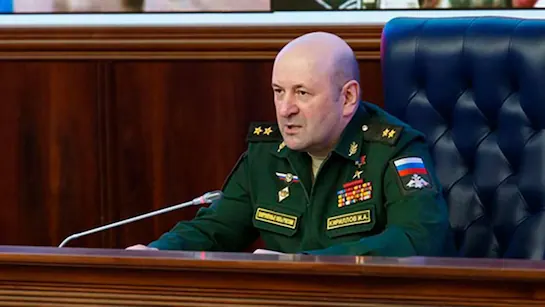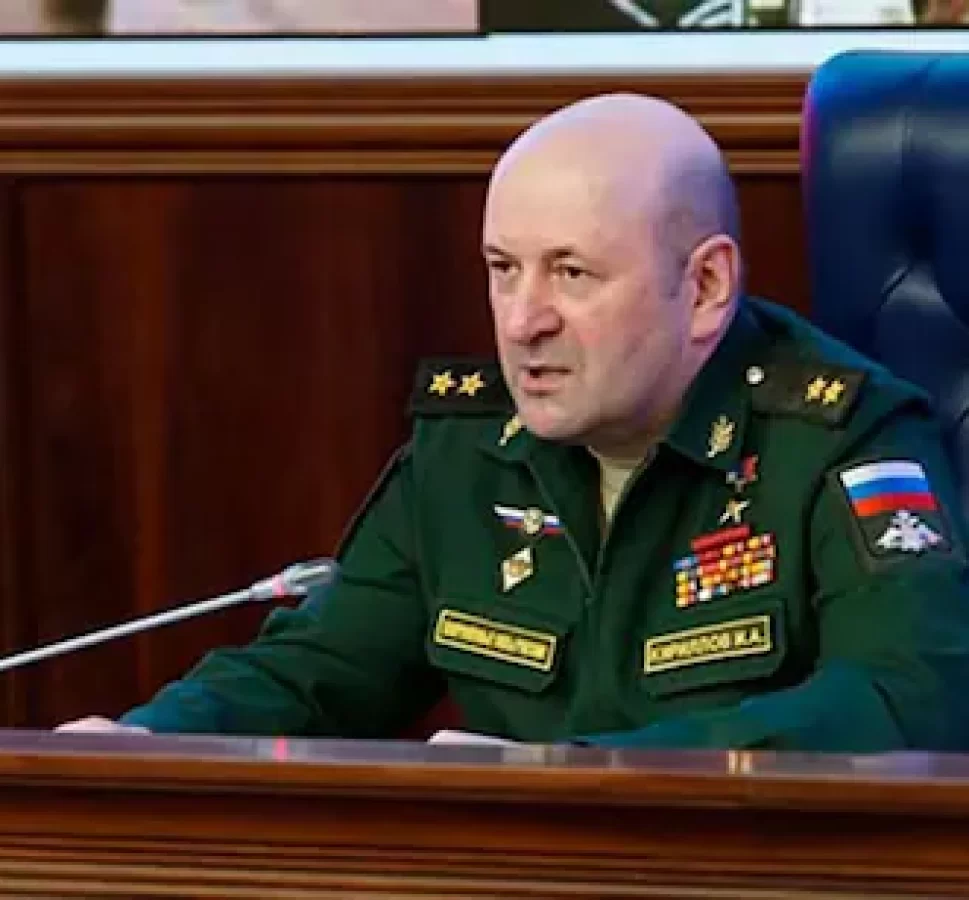
A senior Russian general in charge of nuclear protection forces in Moscow has been killed by a bomb hidden in an electric scooter, Russia’s investigative committee said.
Lieutenant General Igor Kirillov, who was chief of the Troops of Radiological, Chemical and Biological Defence, was killed on Tuesday outside an apartment building on Ryazansky Prospekt.
“Igor Kirillov, the head of the radiation, chemical and biological protection forces of the armed forces of the Russian Federation, and his assistant were killed,” the investigative committee said.
Russia’s TASS news agency reported, quoting a law enforcement official, that the explosive device “had a capacity of some 300 grams in TNT equivalent”.
Photographs posted on Russian Telegram channels showed a shattered entrance to a building littered with rubble and two bodies lying in the blood-stained snow. A criminal case has been opened.
Russia’s radioactive, chemical and biological defence troops are special forces who operate under conditions of radioactive, chemical and biological contamination.
Al Jazeera’s Maria Shapovalova, reporting from Moscow, said according to residents, there was a lack of surveillance cameras in the area where the attack took place.
“Residents of the residential complex where the explosive device went off… have been complaining for years about the lack of normal video surveillance. The cameras were not recording what was happening… on those block of flats,” she said.

On Monday, Ukrainian prosecutors charged Kirillov in absentia with the alleged use of banned chemical weapons in Ukraine, the Security Service of Ukraine said, according to the Kyiv Independent.
Russia denies those accusations.
In October, the United Kingdom sanctioned Kirillov and the nuclear protection forces for using riot control agents and multiple reports of the use of the toxic agent chloropicrin on the battlefield.
Chloropicrin is an oily liquid with a pungent odour known as a choking agent that was widely used during World War I as a form of tear gas. The Organisation for the Prohibition of Chemical Weapons (OPCW) specifically prohibits its use.
Russia has said it no longer possesses a military chemical arsenal but the country faces pressure for more transparency over the alleged use of toxic weapons.
Ukraine’s Security Service, the SBU, said it had recorded more than 4,800 uses of chemical weapons on the battlefield, particularly K-1 combat grenades, since February 2022.






